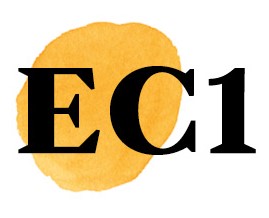
By Oliver Bennett
Ten years ago, Old Street roundabout became the unlikely source of national optimism. Feted by then Prime Minister David Cameron, the Old Street area became the place to find UK startups. With networking events attracting incomers from across the world, it was branded as ‘Tech City’: a technology hub snaking from Old Street all the way to the Olympic Park. But its jokier name stuck – ‘Silicon Roundabout’.
A decade on, Silicon Roundabout still hosts many tech companies. But the passage of time and now the Covid-19 pandemic have changed the area. In August TechHub – the global community for entrepreneurs and start-ups – went into administration, with its founder and CEO Elizabeth Varley saying: “Unfortunately, with a significant reduction in revenue due to the impact of Covid on our member companies , and without an agreement from our major landlord to our proposals for a way forward, we are unable to continue.”
With a loss this big (as Varley said, “We were the first initiative on the roundabout”) observers are wondering if the area’s tech cluster, not to mention the various co-working spaces that have grown up to support it, now that meetings are as likely to be online platforms such as Zoom as in real life, Max Nathan, who has charted the history of Silicon Roundabout , says that it began as a low-cost place to create a “tech cluster”.
“It was lower rent back then and also close to the City,” says Nathan, associate Professor in Applied Urban Science at University College London. “The plan then grew to call it Tech City and link from Old Street all the way to the Queen Elizabeth Olympic Park. The term ‘Silicon Roundabout’ was a bit of a joke but people liked the fact that the area was a bit gritty.” Close to the City of London, it was convenient for entrepreneurs seeking funding and the transport links were good.
Now, adds Nathan, the idea has been “somewhat eroded. It is a bigger cluster now, but not necessarily a better one. Lots of the firms were SMEs [small and medium-sized enterprises] and that ecology has been priced out.” Indeed, accounting firm UHY Hacker Young Group said that that the number of local start-ups had fallen by 80 per cent from 2014 to 2017.
Nevertheless, during the last decade, there were attempts to build up and beautify the Silicon Roundabout area, leading to the Transport for London (Tf L) plan currently refurbishing the roundabout, which began with consultation in 2015.
“In 2016–17 the London Mayor Boris Johnson and David Cameron proposed doing-up the roundabout,” says Nathan. “The idea grew that it could be tourist-friendly – or at least a bit easier on the eye.”
Since then, however, Nathan says that there is less clustering of tech companies, which one can find anywhere from King’s Cross to Hackney. The Google Campus, which once anchored the cluster and was open to the public, restricted access in 2019 and as well as being renamed Google for Startups, now only admits members.
There was always a struggle to make links with the local workforce, adds Nathan. “Hackney Community College set up a scheme to place students in tech jobs but it’s difficult to tell how effective it was.”
So Silicon Roundabout may have served its purpose, and when Tfl completes its work on Old Street roundabout, it will have a different atmosphere. But as to its future prosperity, Nathan is optimistic.
“There may be a bit of a difference in office uptake and possibly a shift to the suburbs,” he says. “But drop-in space is going to do well and we should remember that historically, cities have withstood pandemics and bounced back.” “The idea grew that it could be tourist-friendly – or at least a bit easier on the eye”









